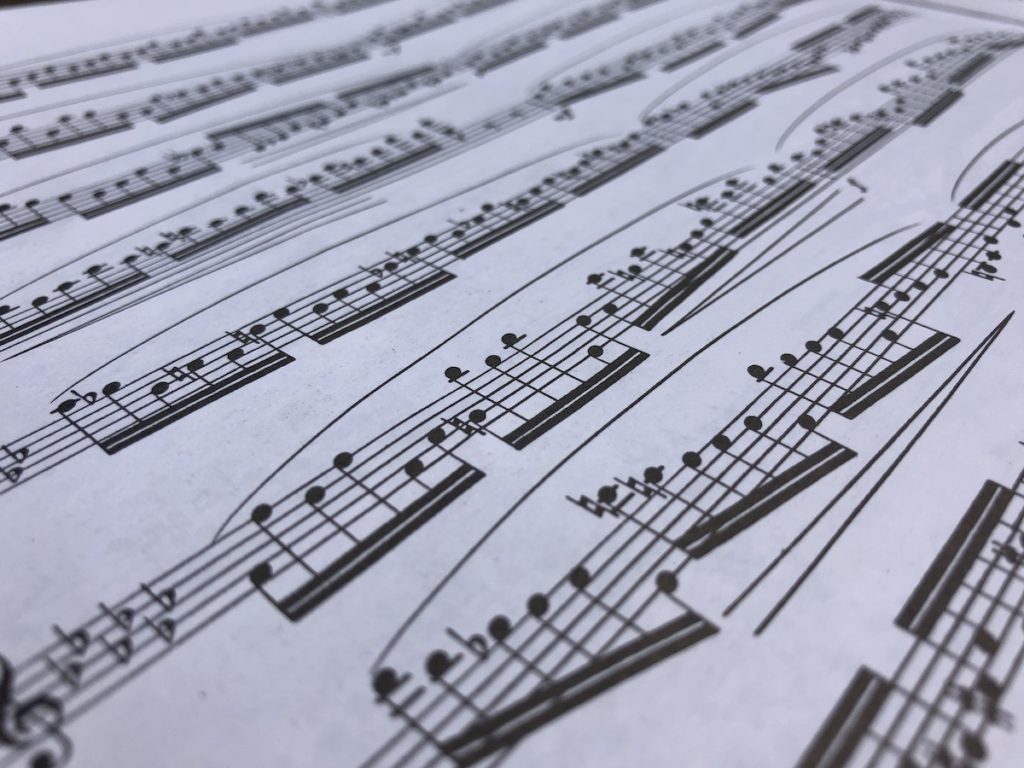By Ellie Steemson 14thAugust 2019
Playing in an ensemble is one of the most beneficial activities for those learning a musical instrument, whatever your age or experience. As a teacher I notice a huge leap forward in my students’ playing when they play regularly as part of a group. It’s also really good fun – but it can feel daunting when you go along to your first rehearsal. I’ve written this guide to give you a bit more of an idea of what to expect, along with a few hints and tips to maximise your success. I hope you find it helpful!

What does it feel like playing in a large group for the first time?
If you are used to practicing on your own without any accompaniment it will feel quite different. The music will probably seem to whizz by, and to begin with you may find it difficult to stay in the right place (musicians tend to use the term ‘getting lost’).
The main thing is not to panic – mistakes always feel huge to you as a player, but I’ve lost count of the number of times people have said to me ‘Well I totally messed up … in that piece’ and if they hadn’t told me I would have had no idea! As a conductor, I will never be angry with anyone for getting lost or making a mistake. Mistakes are learning tools, and anyone who is trying to stop themselves from making a mistake is stopping themselves from learning!
Do your best to find your way back in. As the conductor I may notice and try to help you, and I will try to give an obvious signal whenever we get to a rehearsal mark in the piece. Or your desk partner (the person you share a music stand with) or neighbour might be able to help you out if they are more experienced by pointing out where you are. If all else fails just stop playing and listen to the rest of the piece. You can learn a lot this way so don’t be afraid to take some time out – it may well help you to avoid getting lost again in future.
There are two ways you can look at playing in a group. On the one hand you can think that if you’ve made a mistake you’re letting everyone down. Or, the more positive way of looking at this is to say that all the other people are there to catch you if you fall. The best group playing happens when everyone is supportive of one another and forgiving of their mistakes. Try to keep your focus on the whole sound of the group, rather than getting too bogged down in playing your own part perfectly.
What to expect in rehearsals:
When you are part of a large group, individual playing problems (with notes, rhythms, etc.) are a matter for practice at home. What we are aiming to do is make a great group sound, and with a large group of people that is inevitably (every single time, including concerts!) going to include mistakes by lots of folk – me as a conductor included. We are all human.
Rehearsing a new piece will normally start with playing it through roughly from start to finish. We will then go through it in smaller sections where we may work on areas like dynamics, timing, tuning and balance, then going back to run the piece through and (hopefully!) retain all the things we just worked on. We may also rehearse smaller groups within the ensemble, if they have related parts.
It may be tempting to have a quick practice of a difficult passage during the rehearsal, but try to avoid doing this at it can become quite disruptive (contagious noodling then ensues!). If you do have a difficult section to go over, use your pencil to mark it or make a note of it for yourself when you are practicing at home.
Use your pencil lots! I use mine to write accidentals in if I need to, to circle important dynamics that I may forget to play, or to make annotations such as who is playing the tune, what the conductor is counting in or how many times to repeat a section.
Good rehearsal discipline saves loads of time and creates brilliant results. If everyone takes responsibility for this on an individual level then the group is a lot more productive.
Following a conductor:
The conductor has two sides to their role. The practical side involves the basics of making sure the pieces start and finish together, showing the speed and time signature, and trying to encourage the written dynamics and articulation through gestures with the body. They are also responsible for keeping the rehearsal on track in terms of timing and material covered, and in a performance they provide a focal point for the audience too.
The other side is more creative. Great ensembles play with a unified intention behind the music, and the conductor might convey this through gestures with the body, and through verbally sharing their concepts and feelings about the music.
Hints and tips:
- Always keep a pencil (preferably with an eraser on) in your sax case for use in rehearsals.
- When playing sitting down, it is best to sit near the front of your chair, and bear in mind that you will probably need to have the mouthpiece at a slightly different angle than you would when standing.
- If you have a tuner or tuning app, it’s worth checking your tuning when everyone is warming up at the beginning of the rehearsal. We will tune together as well, but it can make things easier if you are already in roughly the right place.
Copyright: Ellie Steemson 14thAugust 2019
www.fifesaxschool.com

